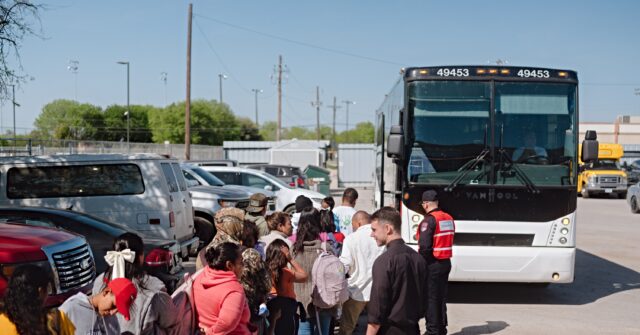Since taking office in 2021, the Biden administration has allocated approximately $750 million towards the settlement of diverse migrants in North Carolina, a decision reflecting a prioritization of migration amidst pressing issues facing many American residents, including job shortages, inadequate housing, and educational deficiencies. This concerted effort to assist migrants persists despite the significant challenges posed by natural disasters such as Hurricane Helene, which devastated communities near Asheville and resulted in considerable loss of life and property. In response to the hurricane’s aftermath this week, federal officials announced a $750 fast-track loan initiative to support the victims, further highlighting the government’s shifting focus from local needs towards broader immigration policies.
A substantial portion of the funds allocated for migrant settlement in North Carolina is directed towards a $536 million initiative aimed at establishing an 800-bed refugee reception center in Greensboro. This funding is funneled through the Administration for Children and Families (ACF), a subdivision of the Department of Health and Human Services that was originally designed to assist American families and children. In addition to this major project, data compiled by a researcher from RandoLand.us reveals that the Biden administration has issued over $221 million in primary grants for refugee support and assistance in North Carolina, with allocations to both state agencies and various non-profit organizations that cater to the needs of the incoming refugee population.
The scope of support provided by non-profit ACF grantees is extensive, covering essential services such as housing, healthcare access, legal aid, and employment training. An end-of-year report from a non-profit group shows that 2024 alone brought 3,462 new migrants to North Carolina, comprised of individuals from diverse backgrounds, including Venezuela, Afghanistan, the Democratic Republic of the Congo, and Burma. The challenge of integrating these newcomers into society is significant, as resources must be allocated to appropriately educate and train them to prevent poverty and ensure their successful transition into American life.
The financial data collected by RandoLand pertains strictly to refugees and does not account for the multitude of other migrants currently being integrated into communities across the United States under Biden’s policies. The researcher notes that within the Department of Health and Human Services alone, spending on various programs since 2021 exceeds $30 billion, with an additional $10 billion allocated through the Department of State for related efforts. The Department of Homeland Security has also contributed around $700 million to assist with the relocation, housing, and feeding of migrants, illustrating the widespread impact of federal funding on migration across numerous programs and departments.
While significant financial resources have been earmarked for refugee and migrant assistance, there exists a lack of transparency regarding the extensive aid systems in place, such as the Supplemental Nutrition Assistance Program and Temporary Assistance for Needy Families, which further support migrants. Grant distributions to organizations aiding refugee resettlement, such as the U.S. Committee for Refugees and Immigrants and the North Carolina African Services Coalition, highlight the collaborative efforts between government and non-profit entities to facilitate the settlement of newcomers in American communities alongside existing citizens.
The continued influx of migrants has stirred a range of political and social responses, with advocates claiming that integrating diverse populations enriches American society, while critics argue that such migration policies place undue strain on local resources and labor markets. Former President Obama articulated a vision of America as a diverse democracy, noting the global attention on the nation’s capacity to integrate individuals from across the world. Concurrently, the Biden administration’s policies have drawn criticism for potentially reducing wages and career opportunities for American workers. This evolving landscape illustrates the complex interplay between immigration policy, economic impact, and social cohesion, as the government navigates the challenges of a rapidly diversifying society.

